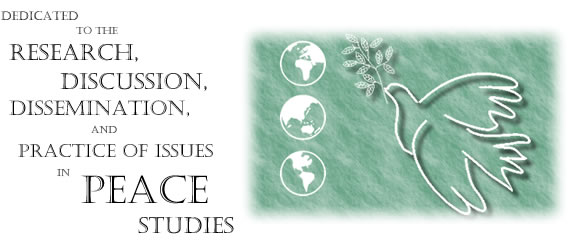International Journal of Peace Studies

Abstract
In this contribution, we attempt to make a case for the fruitful potential of a prospective coordination between the principles of conflict management (particularly Burton’s views) and Habermas’s two deontological models., the latter being the “ideal speech community” and communicative ethics. Firstly, we will enumerate the similarities between Habermas’s observations and those generated from the body of conflict management (CM) scholarship generally. We will secondly analyse the dissimilarities between those of Habermas and Burton in particular. Building on this foundation, we will thirdly assess a number of CM tools in light of Habermas’s two models, and will subsequently conclude that only two of them (integrative negotiation and analytical problem-solving (APS) workshops) are sufficiently compatible with Habermas’s proposals. By then employing a cross-cultural methodology to triangulate our findings, we will fourthly situate our discussion within the decolonisation debate presently enveloping the South African academic space. Habermas’s body of work may indeed be a valuable resource for improving conflict management techniques, even if it has taken quite long for this dialogue to get underway.
Recommended Citation
Bradshaw, Gavin John; Lötter, Casper; and Haines, Richard
(2020)
"Habermas’s Deontological Models and Core Principles of Conflict Management,"
International Journal of Peace Studies: Vol. 25:
No.
2, Article 6.
Available at:
https://commons.lib.jmu.edu/ijps/vol25/iss2/6


